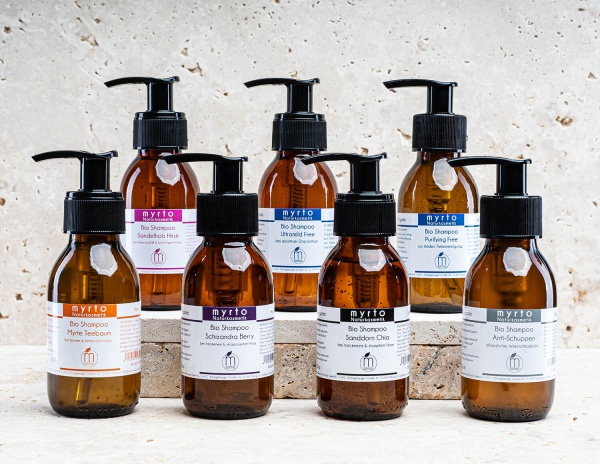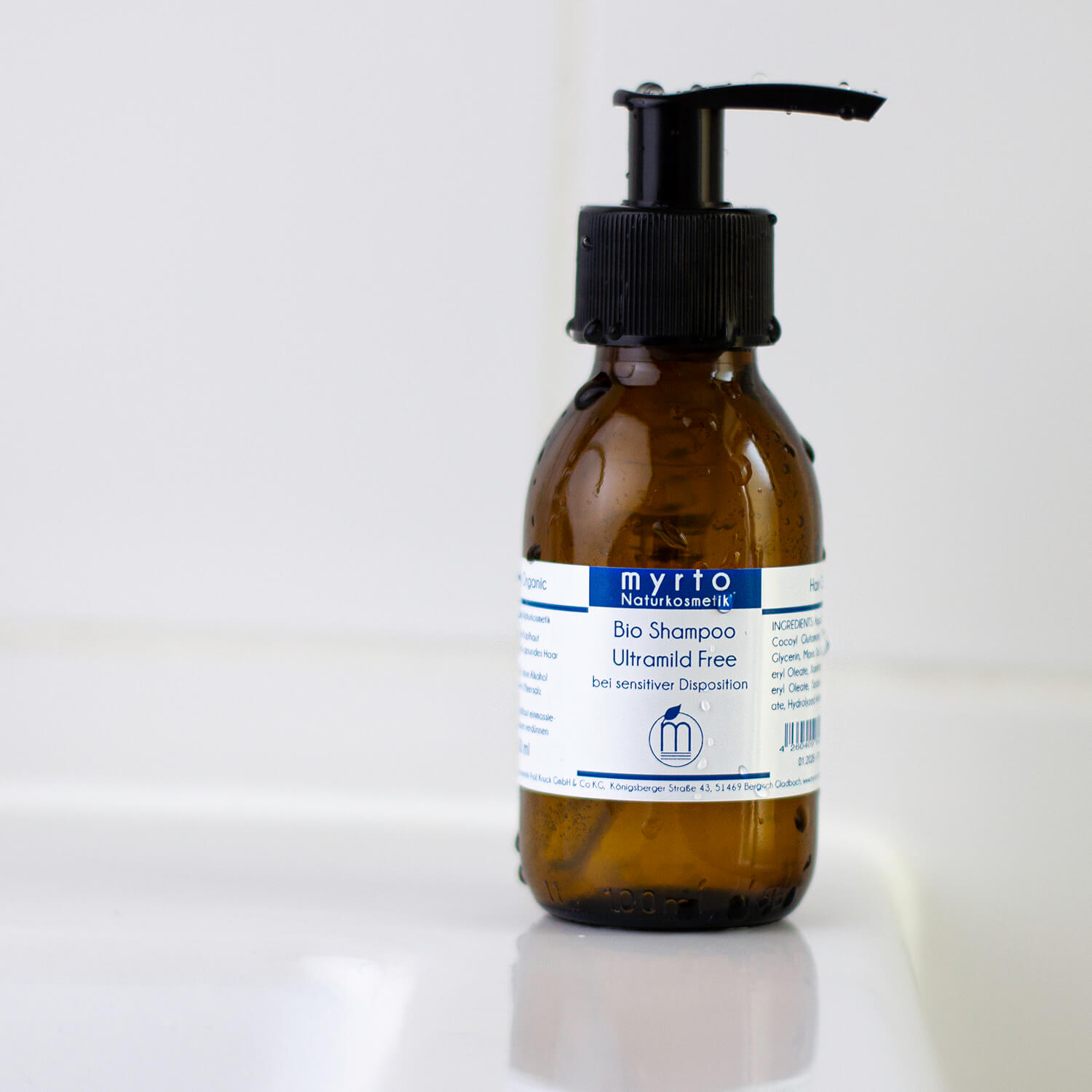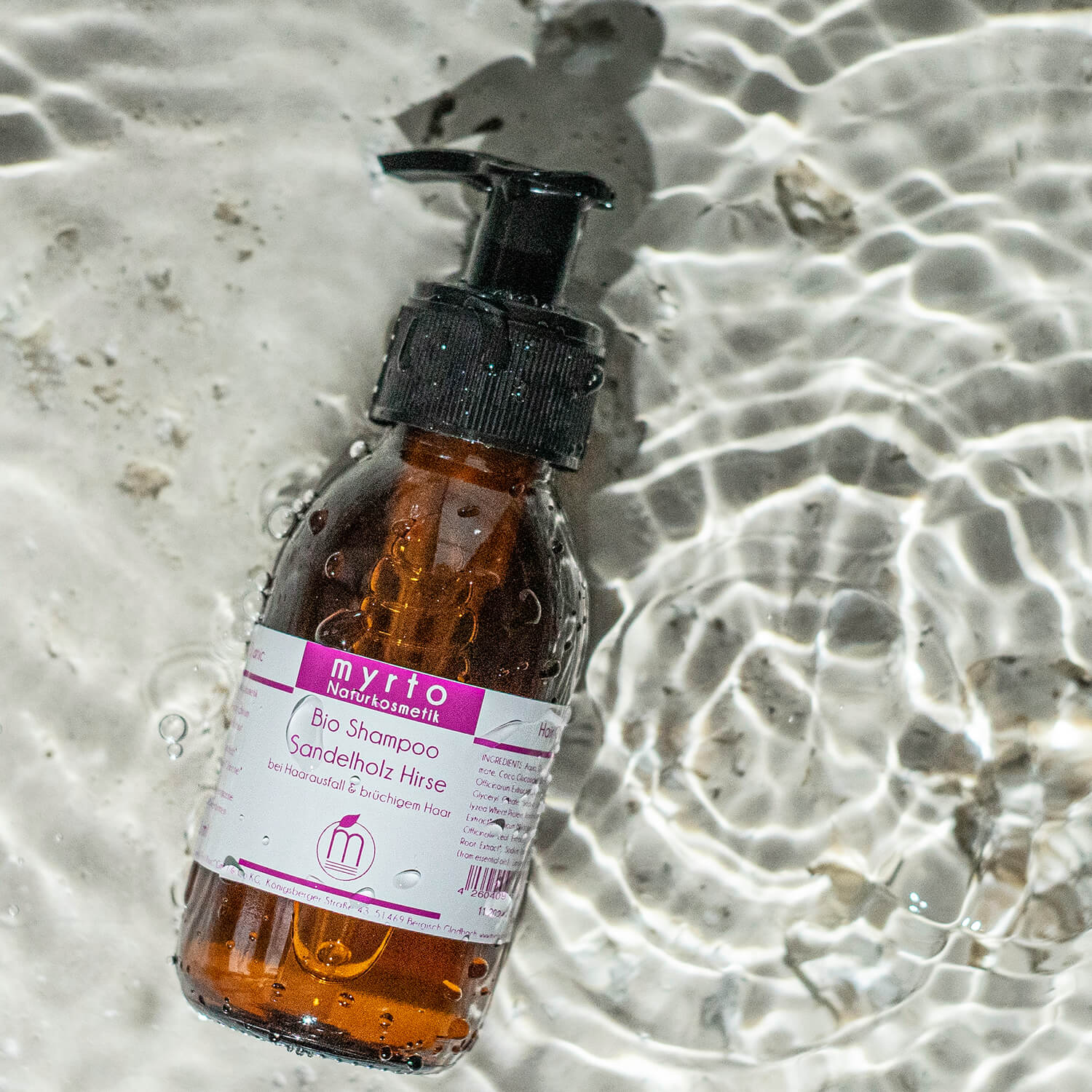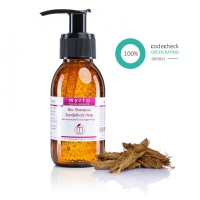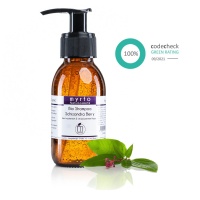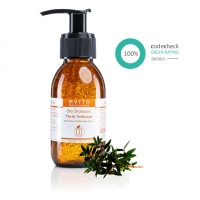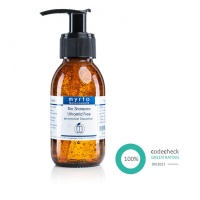Most shampoo manufacturers boast with selected plant extracts and vitamins to strengthen and improve your hair. Additionally, you’ll usually find the note "without silicones" - and many consumers are already convinced to buy the shampoo. But what should you really pay attention to for a good shampoo in the first place?
Most important quality feature - surfactants
All ingredients of a shampoo are quantified in the ingredients list on the label in descending order. At the forefront you’ll find the main surfactants forming the basis of a shampoo. Surfactants placed in the back of the Ingredients list, are usually used only below 1%. They merely modify the foaming power, detergency or consistency of the shampoo. The variety of different surfactants differs in addition to their petrochemical-synthetic or plant-based origin, especially by their skin compatibility from aggressive-irritant to mild and skin-friendly.
Synthetic surfactants and their problems
Conventional shampoo manufacturers commonly use synthetic surfactants. These are usually made from polyethylene glycols (PEGs). They consist of the petroleum-based ethylene oxide, which is considered to be carcinogenic. Such surfactants make the scalp permeable so that pollutants can enter the body and accumulate in the organs. PEG-based surfactants are, for example, the skin-irritant surfactants sodium lauryl sulfate (SLS), sodium laureth sulfate (SLaS) or ammonium lauryl sulfate (ALS). They are the most widely found shampoo surfactants and, above all, cheap to manufacture.
PEG-based surfactants have a high allergy potential and are often triggers for various scalp problems. Amazingly, they are as well found in high-priced pharmacy shampoos, even for sensitive skin. PEG surfactants are characterized by lush, large-pored foam. Generally spoken, you can find a relation concerning the irritation potential of a shampoo: The more lush and large-pored the foam of your shampoo is, the more aggressive the surfactant mixture acts for your scalp and hair.
Surfactants in certified natural cosmetics – unproblematic?
Of course, we only expect natural-based surfactants in certified natural cosmetics. However, natural cosmetic shampoos, for example certified by Ecocert, may also contain the surfactant coconut betaine (cocamidopropyl betaine). In addition to coconut fatty acids, this surfactant also contains a proportion of petroleum chemistry. Coconut betaine may promote allergic skin reactions, sensitizing your eyes and mucosa. In 2004, this surfactant even received the inglorious title "Allergen of the Year".
Even nature-based surfactants do not necessarily have to be skin-friendly. An example is the surfactant Sodium Coco Sulfate, which is the main surfactant in the vast majority of natural cosmetic shampoos. It is of natural origin, but still has a high skin irritant potential (according to Zein test and HET-CAM tests). It dries out your skin and hair. Therefore, when selecting a shampoo, make at least sure that Sodium Coco Sulfate is not at the top of the ingredients list - thus not being the main surfactant.
Mild plant-based surfactants: glucosides / sugar surfactants
The skin-friendly and ecologically harmless natural washing raw materials include the so-called sugar surfactants (glucosides). Glucosides are non-ionic surfactants. They are made from a combination of coconut oil fatty acids and glucose (fructose). You can recognize glucosides in your shampoo by ingredient names such as Coco Glucoside, Decyl Glucoside or Lauryl Glucoside. Glucosides have a rather weak foam formation. Long-term use of shampoos with glucosides as the primary surfactant can sometimes lead to a build-up effect, so that the hair can appear stringy or weighed down.
The top class of mild plant-based surfactants: amino acid surfactants
The so-called amino acid surfactants (acyl glutamates) with their moisturizing properties are considered the top class of mild, plant-based surfactants. With their fine-pored, soft microfoam, they are anionic, sulfate-free surfactants. In addition to the amino acid glutamine from glucose, amino acid surfactants are produced from coconut oil. They clearly surpass sugar surfactants in terms of their optimized skin compatibility, hair-care properties and rapid biodegradability. Detergent amino acids (disodium / sodium cocoyl glutamate) are usually only used in low concentrations as co-surfactants because they are many times more expensive to produce than all other surfactants.
In allen 7 myrto Bio Shampoos setzen wir Aminosäure-Tenside (Disodium / Sodium Cocoyl Glutamate) mit ihrer hautschonenden Pufferwirkung als primäres Tensid in maximaler Konzentration ein. Welche Vorteile hat das?
- The protective thin fatty acid film of the hair fiber remains undamaged, so that the hair does not dry out, become dull, strawy or split.
- The moisture balance of hair and scalp is improved.
- The sebum production of the scalp is brought into balance.
- The hair becomes more resistant and elastic.
- The hair receives more natural fullness.
What other quality features are there in a shampoo?
As a further quality feature, we use exclusively natural vegetable oils, proteins and plant extracts from organic farming depending on the hair type and individual care needs in the myrto organic shampoos. All ingredients correspond to the usual natural cosmetics certifications and sometimes even go beyond them. All 7 myrto organic shampoos are vegan, without alcohol and without preservatives. For; For sensitive, allergy-prone skin and sensitive disposition, there is the Ultramild Free and the Purifying Free Shampoo without fragrances. This makes myrto hair care extremely well tolerated by the skin, strengthens the skin barrier and protects ;prevents moisture loss.

